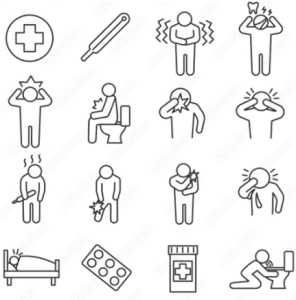
The side-effects of uncontrolled HIV and some antiretroviral drugs and other medications may affect how your system functions day-to-day.
It is important to maintain a healthy digestive system. The digestive system includes the mouth, oesophagus (food pipe), and stomach, small and large intestine and is also known as your gastro-intestinal tract (GI tract) or gut.
A healthy GI tract is important to support absorption of nutrients from the diet. If you are taking anti-retroviral drugs, a healthy digestive system will help ensure proper absorption of medication. It is also one of your body’s defences against infection as the lining of the gut contains many cells that form part of your immune system.
Tips to help maintain a healthy digestive system
Reduce your intake of caffeine, alcohol, sugary and fried foods
Keep your bowel movements regular by eating a diet rich in fruit, vegetables, beans, pulses and wholegrains, such as brown rice, wholemeal bread and oats.
If you smoke, aim to stop smoking altogether
Attend your regular check up appointments
If you are experiencing symptoms such as diarrhoea or nausea and vomiting try completing a Food & Symptoms Diary. This is useful information to discuss with your doctor or dietitian.
Many people have problems sleeping. Some research shows that up to 70% of people living with HIV have sleep problems compared to 30% in the general population.
Sleep problems can be due to being uncomfortable, worry, anxiety, depression, illness or treatment side effects. They can also be caused by poor sleep habits. Drug and alcohol use can lead to problems sleeping.
There are a number of practical things you can do to improve your sleep.
Some people experience weight gain when starting new medications. This page from NAM Aidsmap discusses the evidence.
Speak to your clinicians for advice on managing weight gain.

